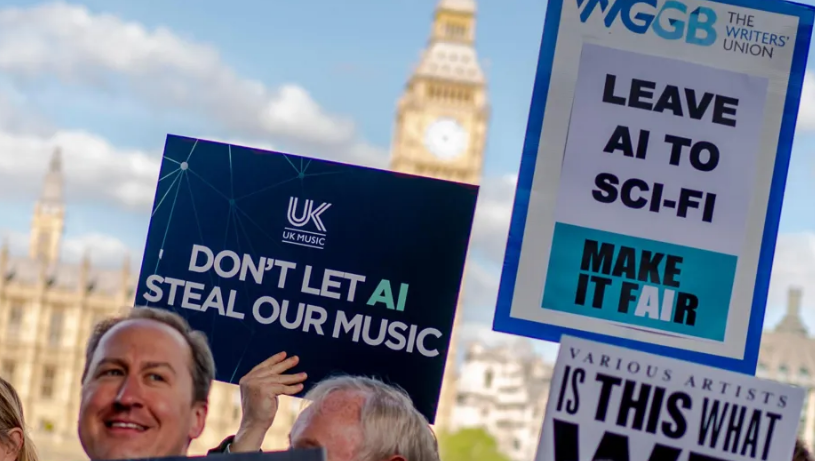A high-stakes standoff over artificial intelligence and copyright law is returning to the House of Lords today, as nearly 300 peers prepare to challenge the government’s flagship Data (Use and Access) Bill. At the centre of the dispute: how to protect the UK’s £124 billion creative sector in the age of generative AI.
The legislation, which had been expected to pass smoothly into law, is now bogged down in parliamentary “ping pong,” moving back and forth between the Lords and Commons as agreement remains elusive. The battle pits the tech industry’s demand for broad access to digital content against growing calls from artists and creators for greater protection and transparency.
Under current proposals, AI developers would be allowed to use copyrighted material for training unless rights holders explicitly opt out. Critics say this could amount to unchecked exploitation of creative work. Peers are demanding changes that would require AI firms to disclose the copyrighted content they use, and potentially license it.
Baroness Beeban Kidron, a leading opponent of the bill and a former film director, warned that passing the law in its current form would amount to “state sanctioned theft” from UK creatives. “Ministers would knowingly be throwing designers, authors, musicians and nascent AI companies under the bus,” she said.
The bill’s supporters argue that requiring permission for every piece of content used in AI training would be unworkable and damaging to innovation. Sir Nick Clegg, former Meta executive, has said such restrictions could “kill the AI industry in this country.”
Technology Secretary Peter Kyle, who has faced criticism from both sides, acknowledged the complexity of the issue, saying UK copyright law was once “very certain,” but is now “not fit for purpose.” The Department for Science, Innovation and Technology said it is still consulting on the issue and will not make changes unless they work for both creators and the wider economy.
Among those opposing the bill are global music icons including Sir Elton John and Sir Paul McCartney. Sir Elton accused the government of planning to “rob young people of their legacy and their income,” describing ministers as “absolute losers” in a recent BBC interview.
At stake is not just the future of the UK’s creative industries but also a host of unrelated reforms bundled into the bill, including measures on NHS data sharing, digital access for bereaved parents, and a national 3D map of underground infrastructure.
With both sides entrenched and compromise proving elusive, there remains a slim possibility that the bill could be shelved entirely — a scenario insiders describe as unlikely, but not impossible.

















